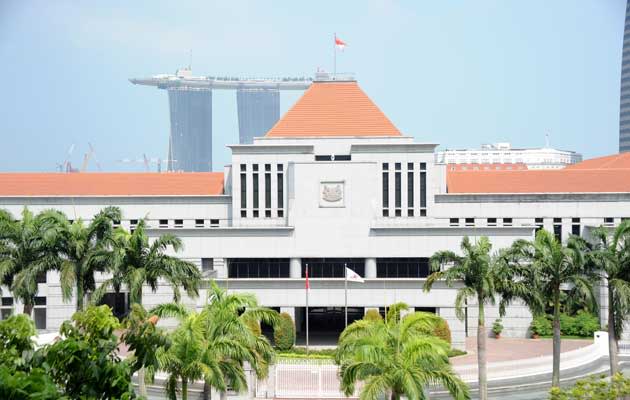Where is Singapore’s next Prime Minister?

By P N Balji
The orderly way in which the Singapore government finds, inducts and grooms its political talent is under strain on three fronts:
One, an electorate that wants a new generation of leaders who are not just technocrats but those who can empathise and connect with them.
Two, the growing reluctance of talented Singaporeans to join the ruling party to fight elections.
This is made worse by the ruling party's poor showing in the last election. The sentiment among those being zeroed in on for politics goes like this: If a man of experience and such high standing as former foreign minister George Yeo can lose his seat, then what about lesser mortals like us?
Three, the lure of high salaries is likely to disappear when the results of a government-ordered review are announced soon.
These mounting obstacles have put a big question mark on who Singapore's fourth Prime Minister is likely to be.
That kind of uncertainty was not present when Lee Kuan Yew passed the political baton to Goh Chok Tong in 1990 and Goh to Lee Hsien Loong in 2004.
Goh entered politics in 1976 and became PM 14 years later. His successor had a much longer gestation period in politics before becoming PM 20 years after his political entry, although many would say that if not for being stricken by cancer, he would have made it to the top much earlier.
This long and patient route to the pinnacle of power in Singapore is now under strain. Seven years after the second systematic hand-over of power to Lee Hsien Loong and with the political clock ticking fast to a 2020 succession deadline, there is still no clear successor in sight.
The two Deputy Prime Ministers, Teo Chee Hean and Tharman Shanmugaratnam, are too old, according to Singapore's age-old standards. Both are 57.
Both the second and third PMs took over when they were 49 and 52 respectively.
And Shanmugaratnam is out of the running because of another old-fashioned criterion: he is non-Chinese.
Prospects of political newcomers
The next group to look at is those political newcomers who were parachuted into office-holder posts soon after the May 7 election.
Leading the pack is Heng Swee Keat. He has an impressive track record: he started his career in the police force as a front-line officer, spent three years as Lee Kuan Yew's principal private secretary, moved up to become the permanent secretary of the Ministry of Trade and Industry and went on to become managing director of the Monetary Authority of Singapore.
As Education Minister, he is already making a name for himself by pushing through subjects like character-building and values-immersion in a school curriculum fixated with excelling in examinations.
A source who attended one of his closed-door sessions said, "He gives the impression that he means business. He seems to be someone who doesn't want to be bogged down by his predecessor's policies. He is in a hurry to get things done."
But, and this is a big but in Singapore politics, he might be too old to be groomed for the top job. He has already hit 50.
Next in the pecking order are two top army men: Chan Chung Sing and Tan Chuan Jin; both are 42.
Major General Chan has already been made Acting Minister of Community Development, Youth and Sports, a hot-potato ministry because it has to deal with the thorny issue of the growing gap between the haves and have-nots.
He has started a series of informal dialogues with Singaporeans, including bloggers. A newspaper described the sessions as a charm offensive to listen to Singaporeans in a non-judgemental way.
Brigadier General Tan is Minister of State for Manpower and is already positioning himself to younger voters as their voice with his Facebook musings.
With nine years left to get the fourth generation of leaders to lead the country, the trio, especially Education Minister Heng, don't have the luxury of time to prove themselves as they get circulated to the different ministries.
Unless the rules of the game are changed to wait it out and let one of the new political heavyweights become Prime Minister well past the 2020 deadline.
If that route is taken, then don't be surprised if an older minister is appointed an interim PM, maybe for five years, to give the newcomers a little more time to prove themselves.
P N Balji, a Singapore journalist for more than 35 years, is now a media consultant.

